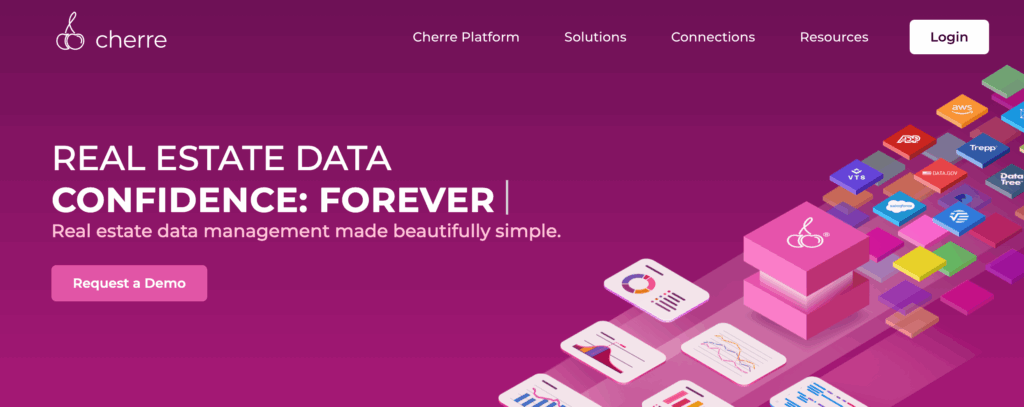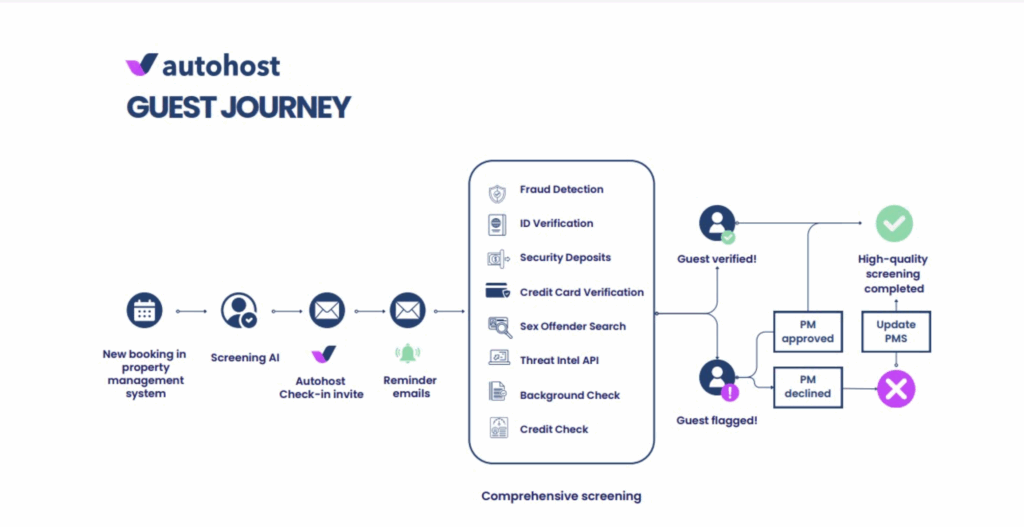Real estate for years has been about endless paperwork and decisions based on instinct. But things are changing fast. Generative AI isn’t just some trend, it’s here to stay and to completely overhaul the real estate game.
Think about it, Generative AI on Real Estate: virtual tours so real you can almost smell the freshly painted walls, market predictions that feel like having a crystal ball.
According to Precendnace Research, the global generative AI in the real estate market is projected to reach $1.3 billion by 2034, growing at a CAGR of 11.52% between 2024 and 2034.
This isn’t just an upgrade; it’s a fundamental shift in how we interact with property.
Generative AI is rapidly becoming a core driver of innovation in the real estate sector. In this post, we’re breaking down the 10 Transformative Impacts of Generative AI on the Real Estate Sector.
These aren’t just minor tweaks; they’re the core changes that will redefine how we interact with the spaces around us and the investments that matter most. Let’s get into the details to see how you can implement AI for your real estate business.
Impacts of Generative AI on the Real Estate Sector
Generative AI isn’t just a buzzword. It’s the engine driving a profound digital transformation in real estate sector. From how we see properties to how we seal deals and smoothly manage new possibilities. This isn’t just about completing tasks faster, but rather focuses on creating richer experiences and smarter investments.
Real estate professionals can now deliver hyper-personalized client journeys through immersive virtual tours, data-backed recommendations, and compelling AI-generated content. Effortlessly managing leases and conducting thorough tenant screenings is now a reality with AI assistance. You can even picture predictive analytics offering accurate insights into investment opportunities.
As AI seamlessly integrates into the daily workflows of agents, asset managers, proptech developers, and real estate investors, they stand to gain from enhanced accuracy, superior service delivery, and lightning-fast decision-making.
Here are some tangible ways generative AI is reshaping the industry‘s present and paving the way for its future success in the competitive digital landscape.
1. AI-Powered Virtual Tours
Generative AI is revolutionizing property visualization through immersive, AI-powered virtual tours. The enhanced property visualization provides detailed, high-fidelity digital walkthroughs.
AI-powered virtual tours offer a lifelike, immersive experience far beyond grainy 360° photos—accessible anytime, anywhere. This remote access helps attract international buyers, making property searches more convenient. It empowers buyers to envision themselves living in the property, a crucial element in the decision-making process.
How It Works: AI algorithms are trained on vast datasets of real-world environments and architectural designs. With the available data, it can turn floor plans or property photos into photorealistic 3D environments and interactive walkthroughs. They can even fill empty spaces with virtual furniture (AI virtual staging) to help prospects truly connect with the space.
Ultimately, AI-powered virtual tours are leading to increased engagement, richer information delivery, faster sales cycles, and more satisfied clients, setting a new benchmark for the real estate industry.
Example: Matterport

2. Smart Property Valuation Models
You don’t need to rely solely on comparable sales from months ago anymore. Generative AI enables real estate professionals to determine accurate property values with remarkable speed and precision.
Such dynamic property valuation models minimize the uncertainty and strengthen negotiation positions for sellers and agents. Conversely, buyers benefit from transparent pricing, enabling them to make informed decisions based on reliable and up-to-date information.
How It Works: AI models analyze vast datasets, including real-time market trends, recent sales data, local amenities, and property features. After understanding the market dynamics, they provide pricing recommendations that reflect the current market reality. Moreover, the AI models ensure listings are competitively priced, maximizing the potential for quicker sales and optimal returns.
In a dynamic market, AI-powered valuations are becoming indispensable tools, fostering stability and trust in real estate transactions for all stakeholders.
Example: HouseCanary, Restb.ai
3. AI-Driven Property Recommendations
Are you playing matchmaker but struggling to find “the one” for your clients? Guess what – Machine learning is your new wingman in finding dream homes that actually match their vision. You can now focus on enhancing the customer experience, rather than sifting through irrelevant listings.
Generative AI allows for hyper-personalized property recommendations that go beyond basic filters. This personalized approach streamlines the search process and makes buyers feel truly understood and supported throughout their journey.
How It Works: By analyzing user behavior (clicks, saves, inquiries), stated preferences, and historical search data, AI models deliver property recommendations. They consider factors like location preferences, budget constraints, desired amenities, and even subtle lifestyle indicators, leading to recommendations that truly align with what a buyer is looking for, even suggesting properties they might not have explicitly searched for.
By presenting options that closely resonate with buyer preferences, agents can increase their chances of successful showings and build stronger, more lasting client relationships – a clear win-win powered by the intelligence of machine learning.

4. AI-Enhanced Customer Interaction
Clients can now get instant answers to their queries from AI-driven chatbots. It has revolutionized customer support in the real estate industry, saving time for both agents and clients.
If you’re wondering whether such chatbots are limited to frequently asked questions, then that’s not the case. AI-powered bots can now analyze sentiment and understand nuanced language, enabling them to escalate complex requests to the appropriate human experts seamlessly, ensuring that every customer receives prompt and accurate support. Moreover, this AI and human agents’ synergy leads to a more agile and client-centric real estate business.
How It Works: Natural Language Processing (NLP) models are trained with conversational data, allowing them to understand the intent behind user questions, even when phrased in different ways. Based on such data, AI bots synthesize relevant and coherent answers, providing instant support on listings, availability, and property features.
Chatbots not only boost operational efficiency but also contribute to building stronger, more responsive relationships with customers, setting a new standard for customer service excellence in the industry.
Example: Homebot.ai, Glide
5. Predictive Market Analysis for Investment Insights
Predictive market analysis, powered by generative AI, is enabling more accurate forecasting of real estate trends. They can identify high-growth areas or undervalued properties with greater precision.
Investors and asset managers can make more informed and confident investment decisions. Whether deciding on the optimal time to buy, sell, or hold, AI-driven insights in real estate is refining the investment strategies, leaving no room for second-guessing.
How It Works: AI models analyze historical price trends, economic indicators, demographic shifts, and even sentiment data to identify patterns and predict future market movements. It synthesizes these insights into comprehensive reports and visualizations, highlighting potential opportunities and risks for investors and agents.
Such market analysis capability benefits not only large institutional investors but also individual buyers and sellers, democratizing access to sophisticated market intelligence and fostering greater transparency in a rapidly evolving market.
Example: Cherre

6. Efficient Lease Management and Automation
Efficient lease management is the backbone of successful property management, and generative AI makes this process more streamlined and efficient than ever before. AI-powered tools streamline and automate various aspects of lease management, reducing manual effort and errors.
Property management teams can now rely on AI to handle repetitive admin tasks such as document review, lease renewals, rent calculations, and compliance monitoring, freeing them to focus on high-value work like tenant engagement and growing their portfolio.
How It Works: AI models are trained to understand and extract key information from lease agreements, track critical dates, automate rent calculations, and flag potential compliance issues. Currently, AI systems that automatically review lease documents and generate summaries or identify potential risks are under development.
It has resulted in improved operational efficiency and a more reliable property management service. Timely lease administration with reduced errors further fosters greater trust with property owners and increased satisfaction among tenants.
7. Comprehensive Tenant Screening
Finding the right tenant for property owners is challenging only for those who haven’t incorporated AI into their system. AI-powered tenant screening is making the rental management process faster, more thorough, and more accurate.
Advanced generative AI can also detect subtle signs of fraud that might be missed by human reviewers, helping to prevent costly and stressful issues down the line. For landlords and property managers, this comprehensive tenant screening approach leads to fewer defaults and better tenant placements.
How It Works: Generative AI algorithms analyze applicant information, credit reports, rental history, and even publicly available behavioral data to quickly assess risk, empowering property managers to make more informed leasing decisions.
For landlords and property managers, this comprehensive tenant screening approach leads to fewer defaults and better tenant placements. Responsible tenants also benefit from a smoother and more transparent approval process, fostering fairness and trust in the rental agreement.
Example: Autohost, TenantEvaluation

8. AI-Powered Management Systems
AI-based management systems are transforming how operators manage and optimize property operations. Such a system can identify opportunities for significant energy efficiency improvements, benefiting both property owners and tenants.
It further analyzes energy usage patterns and suggests optimal settings for HVAC and lighting systems to minimize costs and environmental impact. For facility managers, the ability to predict equipment failures and proactively address maintenance issues minimizes downtime and reduces operational expenses.
How It Works: These systems analyze real-time sensor data temperature, occupancy, energy usage, equipment status) to identify anomalies, predict maintenance needs, and optimize resource allocation. Based on the report, it automates maintenance requests and optimizes energy consumption, providing actionable insights for more efficient and cost-effective building management.
Ultimately, these intelligent buildings provide enhanced visibility and control over operations. It leads to better-maintained properties, happier tenants, and a more sustainable real estate portfolio.
9. Targeted Marketing Strategies
AI analytics are revolutionizing real estate marketing strategies. It allows for the creation of highly personalized and effective marketing campaigns that speak to the audience.
Real estate professionals can identify ideal target audiences for specific property types based on the available data. The AI analytics ensures that marketing efforts and messaging are precisely aligned with individual interests and behaviors.
How It Works: AI-powered marketing platforms analyze vast amounts of customer data and engagement trends, and empower agents to create highly targeted ads and content. The system identifies the most effective marketing channels, develops personalized campaign messaging, and optimizes advertising spend for maximum return on investment.
This focused approach significantly boosts engagement rates and improves lead conversion. Moreover, it makes every marketing effort more agile, measurable, and ultimately generates more ROI, enabling real estate businesses to thrive in the competitive digital landscape.
Example: Propseller

10. Real-Time Data Integration for Streamlined Operations
The seamless integration of real-time data is dramatically improving the efficiency of real estate operations. You can build AI dashboards that provide real-time insights into occupancy rates, maintenance requests, and financial performance, with generative AI summarizing key findings and suggesting actions.
Automation and connected platforms reduce admin work and improve team collaboration, respectively. Furthermore, tenants, investors, and service providers benefit from better communication and faster, proactive support.
How It Works: AI platforms can connect to and process data from various real estate systems in real-time. Such data is then synthesized into intuitive dashboards and reports, providing a holistic view of operations and highlighting key trends and anomalies that require attention.
Optimizing building utilization and tracking financial performance in real-time significantly enhances operational efficiency, paving the way for leaner, smarter, and more resilient real estate businesses.
Example: Generative AI could even assist in generating automated reports summarizing key performance indicators.
Key Takeaway
The impacts we’ve covered show one thing clearly: generative AI isn’t just a futuristic concept; it’s becoming the backbone of a smarter, faster, and more personalized real estate industry.
From immersive virtual tours, automating routine tasks, to accurate market predictions, and building stronger client relationships, AI is driving real change. The real estate teams that adopt these technologies now will lead the way, offering better service, making sharper decisions, and shaping the future of how we live and work.
The shift is happening. The question is – will you lead it or follow it?
Frequently Asked Questions
1. How does Generative AI influence buyer decision-making in real estate?
Generative AI empowers buyers with personalized property recommendations, lifelike virtual tours, and accurate data on property features. This enables faster, more confident decisions by helping buyers visualize living in the space, compare options easily, and reduce uncertainty, improving both satisfaction and conversion rates.
2. How can real estate agents start using Generative AI?
Agents can begin with tools like Matterport for 3D virtual tours, AI-powered writing tools for listing descriptions and blogs, and chatbots for 24/7 customer support. These tools are easy to integrate and offer immediate improvements in productivity and engagement. As familiarity grows, agents can adopt more advanced solutions like predictive analytics or AI-driven CRMs to scale their operations efficiently.
3. Can AI technologies accurately predict real estate market trends?
AI analyzes massive datasets such as market activity, historical pricing, and economic trends to detect patterns and forecast future movements. While no system can guarantee perfect accuracy, AI offers far more data-driven insights than traditional methods. This helps real estate professionals plan more effectively and reduce risk in investment or sales decisions.
4. Is Generative AI expensive to implement in a real estate business?
Not necessarily. Entry-level AI tools for content, marketing, or virtual staging are affordable, even for small teams. While the pricing of custom AI solutions depends on deliverables, the key is starting small and scaling based on your goals. Curious what’s right for your business? Feel free to reach out, we’re happy to guide you through the options.
7. Are there privacy concerns with using AI in real estate operations?
Yes. AI systems often rely on personal data, making data security and compliance critical. Businesses must implement strong data protection protocols and be transparent with clients about how their data is used. This builds trust and ensures compliance with regulations like GDPR or CCPA.
8. Is Generative AI going to replace real estate agents?
No. AI enhances the role of agents by taking over repetitive tasks, like drafting listings, managing follow-ups, or analyzing trends, so agents can focus on personal connections, strategic advice, and closing deals. Those who combine AI tools with human expertise will have a strong competitive edge.


